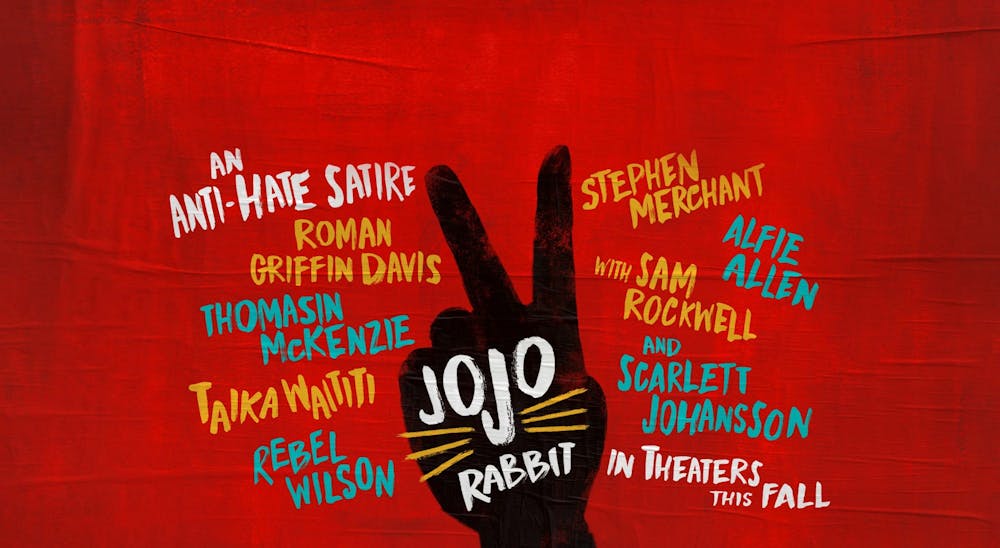Film: Jojo Rabbit
Release Date: Oct. 18 (Select Theatres), Nov. 8 (Everywhere)
Studio: Fox Searchlight Pictures
Grade: 8.5/10
Taika Waititi is no stranger to playing unconventional roles in his films. He’s appeared as everything from a 379-year-old vampire to a rocking alien. But in his most recent film, “Jojo Rabbit,” he portrays someone even more shocking: Adolf Hitler.
Waititi’s first mainstream appearance was directing Marvel hit “Thor: Ragnarok,” rejuvenating the thunder god’s storyline with quirky humor that fans couldn’t get enough of. Waititi’s MCU breakout was far from his first stab at comedic brilliance, as he has dozens of equally hilarious independent films under his belt prior to his commercial success. Now, Waititi has another film to add to his list of successes.
Told through the eyes of 10-year-old Hitler Youth Johannes (Roman Griffin Davis), “Jojo Rabbit” offers a satirical view of Nazi Germany and blind faith in leadership. Johannes (Jojo) is a typical Nazi boy, with imaginary friend Hitler (played by Waititi) as his personal confidant.
We watch as Jojo handles internal dilemmas through “conversations” with Hitler. Life is tough for the Nazi-in-training, who is picked on for not being as cruel as the other boys and after a grenade accident, finds himself crippled and scarred. He later realizes his compassionate and zany mother (Scarlett Johansson) is hiding Elsa, a Jewish girl (Thomasin McKenzie), in the attic of his house. As the war comes to an end, Jojo is forced to realize with tear-jerking seriousness that Hitler wasn’t the best role model.
Depicting Hitler in any kind of a humorous light sounds like an inherently bad idea, but somehow here, it isn’t. Waititi’s role artfully balances undertones of hate with the plot’s goofy antics, defining the mood of the movie.
The work’s brilliance comes from the uncomfortable nature of the comedy. There are moments where it is hard not to cry laughing, but each laugh is accompanied by moments emphasizing the true horrors of World War II. By the end of the film, it’s hard to determine whether your gut hurts from laughing or the sucker punch from such harrowing content.
Davis, 11 years old, carries the film impressively, demonstrating an emotional maturity that is hard to find in adult actors. One minute he is a detestable Nazi and, in the next, a little boy in need of compassion. The relationships with his mother, Elsa and even Hitler are tragically heartfelt.
The remaining cast of characters bolster Davis’ performance and add to the film’s comedic genius. Unfortunately, Waititi didn’t give all of these strong characters the screen time they deserve, which is the primary criticism of his creative vision.
Among the forgotten is Sam Rockwell. The Veteran actor gives a humorous and touching display as Jojo’s washed up instructor, Captain Klenzendorf, making his performance one of the film’s most delightful, but sadly one of the least appreciated.
Another stand-out performance comes from Yorki (Archie Yates), Jojo’s only true friend among the Hitler Youth. Yates, along with some of the other young cast members, gave top-tier performances in the extremely limited time they were on the screen.
Behind the jokes about German clones, burning books and ridiculous propaganda, the film provokes an unsettling feeling. Waititi does a brilliant job creating parallels between the hate that fueled WWII and the hate that permeates the world today.
The arts desk can be reached at arts@ubspectrum.com.





